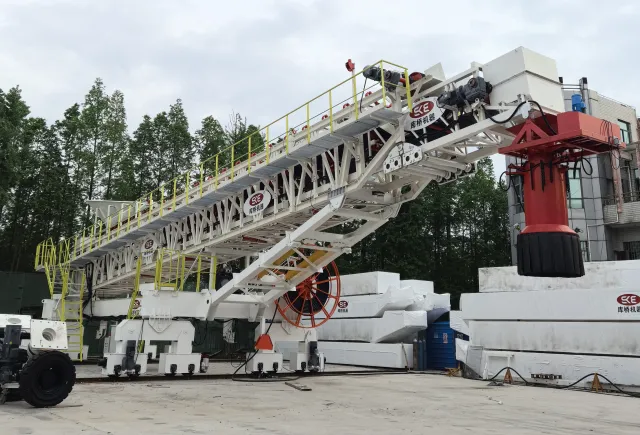
Each type of ship loader has its advantages and is suitable for specific types of cargo and operational requirements. Ports and terminals may employ a combination of different ship loader types to optimize efficiency and accommodate various types of bu
The choice of coal ship loader type depends on various factors, including port infrastructure, vessel characteristics, loading requirements, and operational preferences. Ports and terminals may employ a combination of different loader types to optimize efficiency and adaptability in coal loading operations. Bulk Materials ship loaders are often used to handle aggregate, ores, coal, grains, fertilizer, wood chips, etc.
Fixed ship loaders are stationary installations mounted on a fixed structure along the dock or quay. They have a fixed boom and conveyor system, making them suitable for ports with consistent loading requirements and limited space for maneuverability.
Mobile ship loaders are mounted on wheels or tracks, allowing them to move along the dock or quay to different loading positions. These loaders offer flexibility in handling various vessel sizes and configurations, making them suitable for ports with multiple berths or changing loading requirements.
Telescopic ship loaders feature a telescopic boom that can extend and retract, providing flexibility in reaching different parts of the ship's hold. These loaders are adaptable to various vessel sizes and can accommodate changes in loading positions.

telescopic ship loader
Continuous ship loaders are designed for continuous and uninterrupted loading of bulk materials onto ships. They ensure a constant flow of cargo, reducing loading times and optimizing efficiency. Continuous ship loaders are useful for ports with high-volume loading operations.

Continuous Ship Loader
Pneumatic ship loaders use air pressure to convey bulk materials from storage facilities to the ship's hold. These loaders are particularly useful for handling delicate materials or when dust suppression is a concern.
Articulated ship loaders have an articulated structure that allows them to move in multiple directions, providing flexibility in positioning and aligning with different ship sizes and configurations. These loaders are useful for ports with challenging loading conditions.
The choice of bulk material ship loader type depends on various factors such as port infrastructure, vessel characteristics, loading requirements, and operational preferences. Ports and terminals may employ a combination of different loader types to optimize efficiency and adaptability in bulk material loading operations.